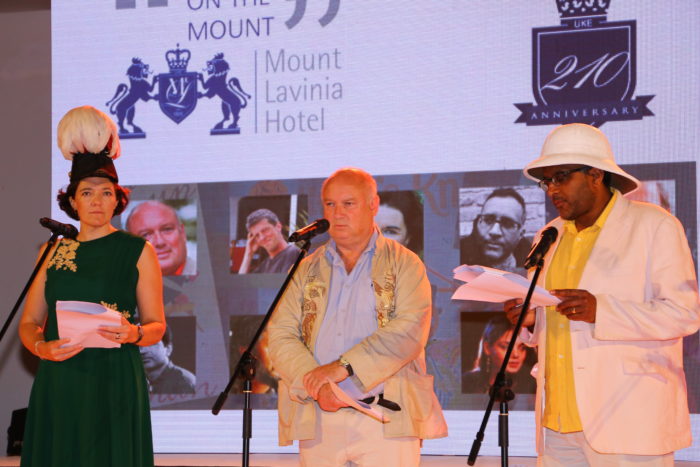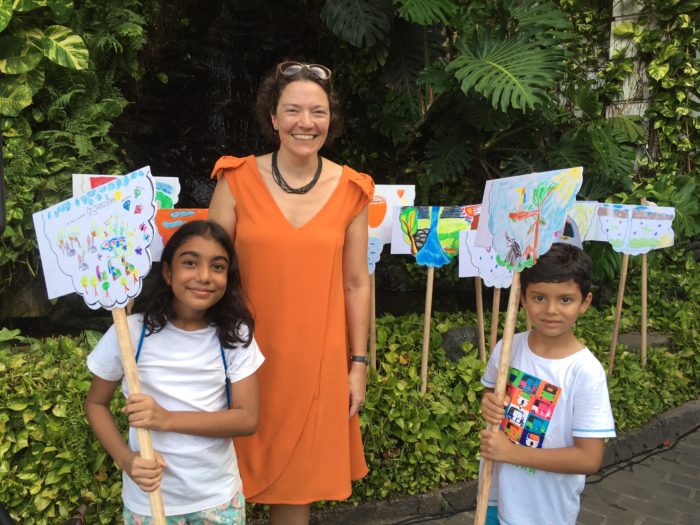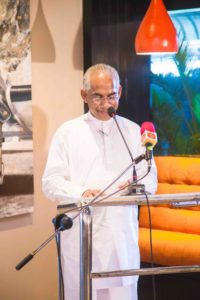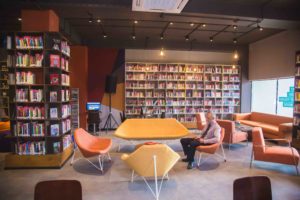12th July 2016 Colombo, Sri Lanka
The books that bind

It was a career first for me on Sunday, when I found myself selecting knickers for Her Majesty The Queen.

No lèse-majesté this, rather part of the celebrations of the 210th anniversary of the building of the Governor’s Palace at Mount Lavinia. This included a literary festival, featuring British authors who have written about or been inspired by Sri Lanka, Sri Lankan authors who publish in English, and authors who share British and Sri Lankan nationality and heritage. Louis de Bernieres, Ashok Ferrey, Rohan Candappa were just some of those who took to the platform. So too did Nicholas Allan, author of The Queen’s Knickers, a book imagining how Her Majesty has knickers for every single occasion. He led a series of children’s workshops in which they designed knickers suitable for a trip to Sri Lanka, and I was proud to select underwear for each element of a royal trip around the island, suitable for every activity from stilt fishing to tea drinking to elephant riding. I hope that Her Majesty, who gives copies of the book to children she visits in hospital, would have approved of my choices.

Another highlight for me was joining the British authors in a short dramatisation of the correspondence between the Governors in Ceylon and the Treasury in London about the cost of construction in Colombo. In 1820, Governor Edward Barnes wrote: “In respect of the House at Mount Lavinia, it is from the nature of its construction an object of continued expense for repairs to a roof badly put on and of temporary materials. Even immediately after what is called a complete repair, it admits the rain in every part, and is uninhabitable for nearly one half of the year.” The High Commission in Colombo needs a new roof too, so I sympathised with every line of his letter. It’s just a shame that I don’t get to wear such a fine feathered hat when sending my own budgets back to London.
Books were also the order of the day the previous Friday at the launch of the British Council’s new library space inside the Coffee Bean and Tea Leaf at the Orion City IT Park. Books, research and computer games from the main British Council Colombo library can now be borrowed from the Orion City Coffee Bean, making the collection more accessible.

It’s a zippy and high energy space. Coffee houses have a history of being a hub for the exchange of ideas. Lloyd’s Coffee House, founded in the 1680s, attracted ship owners and merchants as customers and acted as a hub through which news about ships was passed. It eventually developed into the insurance broker Lloyd’s of London. Coffee houses also used to be seen as alternate centres of academic learning: Sir Isaac Newton and the astronomer Professor Halley were two great lecturers at London’s coffee houses in the early eighteenth century. More recently, the author JK Rowling is famous for having written the first of the Harry Potter series in the cafes of Edinburgh. So it was a perfect place to sign a contract with the British Council for a project promoting links between UK and Sri Lankan universities and students. A great partnership all round, to which I wish every success.

Cicero said that a room without books was like a body without a soul. My rooms are the richer for the last few days, and so many of the new books within them celebrate the enduring ties between Sri Lanka and the UK.
My great-great grandfather arrived in Colombo on 2 May 1842, on a horse (all the way from London, after 7000 miles on horseback) and was greeted by the Governor, Sir Colin Campbell. His journey took 2 years and 10 months. He was British Consul in Colombo and lived in Ceylon/Sri Lanka for 25 years until his retirement in 1866. His life, the books he wrote and his adventures are told in my new book, entitled, “The Mitford Family” available on Amazon.com.
wish you all the best..have a nice day..god bless you..